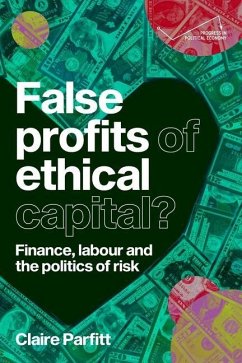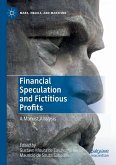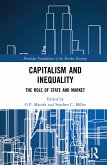'A rich contribution to social science [which] incisively interrogates the prophecy that better management of environmental, social and governance risks (ESG) can build a more equitable, stable and sustainable capitalism. A must read for students and scholars, proponents and opponents of ethical capital.' Darius Wójcik, National University of Singapore False profits of ethical capital is a timely study of an important political economic phenomenon: ESG investing and stakeholder capitalism. Moving beyond observations of the inadequacies of responsible business as a vehicle for social change, this book argues that ESG investing and related corporate responsibility practices facilitate profit through speculation on ethics. Ethical capital is framed as a process through which political challenges to capital accumulation on social and environmental grounds are transformed into opportunities for profit. A speculative moral economy prevails, in which it is assumed that business can do well and do good at the same time, belying the conflicts between different 'stakeholders'. The practices of stakeholder capitalism aim to neutralise the ethical dilemmas presented by overlapping social, ecological and economic crises, and in the process, alienate ethics from the human being and transform them, via financial calculus, into metrics that inform value relations. These processes manifest in ESG investing, sustainability reporting and corporate branding exercises. False profits exposes the contradictions that are concealed by sustainability politics, and suggests an alternative frame for thinking through the strategic challenges of contesting ethical capital.








